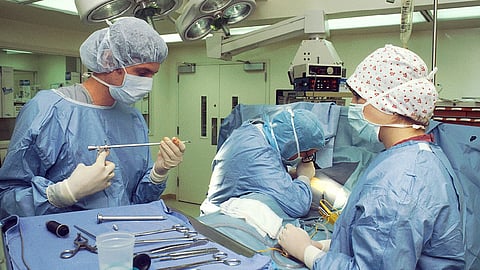Dr. Raj Dasgupta, chief medical advisor for Fortune Recommends Health, pointed out that while bariatric surgery is not typically the first choice for treating individuals with obesity and chronic kidney disease, it is becoming more common for those with severe obesity, especially if diabetes is present. However, qualifying for surgery coverage from insurance companies in the United States requires meeting specific criteria, including a body mass index (BMI) between 35 and 40 without other medical conditions.
Although GLP-1 drugs can help control diabetes and support weight loss, they do not produce the metabolic changes seen with bariatric surgery. Dr. Ali explained that the gastric sleeve procedure removes parts of the stomach that produce hunger hormones, such as ghrelin. This reduction in hormone levels leads to a decreased sensation of hunger, allowing patients to eat less without feeling deprived.
Dr. Dasgupta added that these metabolic changes contribute to improved overall health and help protect the kidneys by managing diabetes and other risk factors that can damage them. Bariatric surgery also offers more durable weight loss outcomes than current medications. According to Dr. Ali, long-term success rates for bariatric surgery are around 80%, significantly higher than the 2-5% success rate with diet and exercise alone. The long-term effectiveness of GLP-1 drugs is not yet fully understood, but it is expected to be better than diet and exercise, though not as effective as bariatric surgery.
The findings from this study suggest that bariatric surgery could be a more viable option for reducing chronic kidney disease progression in patients with obesity and type 2 diabetes compared to GLP-1 drugs. However, the choice of treatment should be individualized, considering the patient's specific condition and health needs.
Reference:
1. Surgery, *Department of General. “Renoprotective Effects of Metabolic Surgery versus GLP1... : Annals of Surgery.” LWW. Accessed October 4, 2024. https://journals.lww.com/annalsofsurgery/fulltext/2024/09000/renoprotective_effects_of_metabolic_surgery_versus.7.aspx.
(Input from various sources)
(Rehash/Ankur Deka/MSM)


